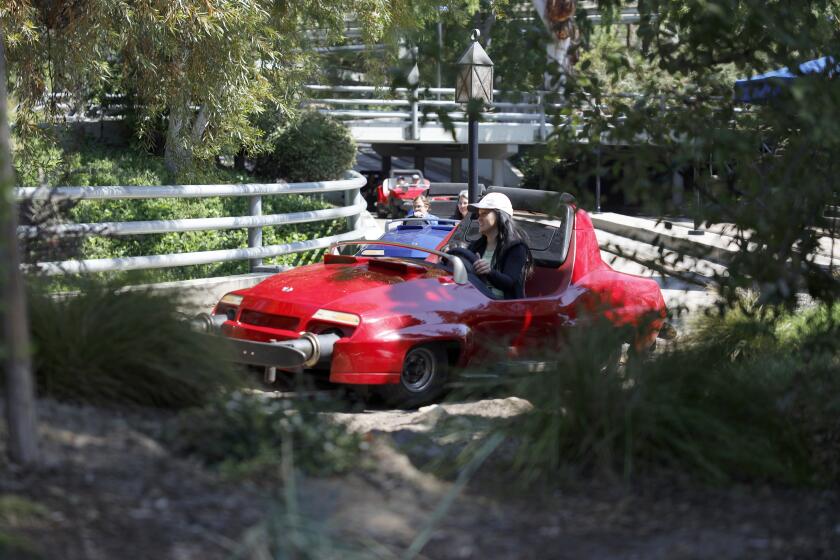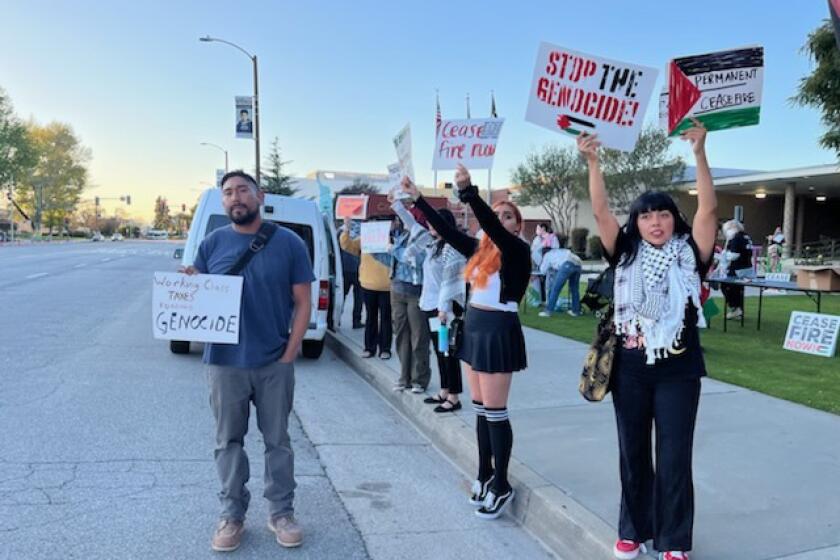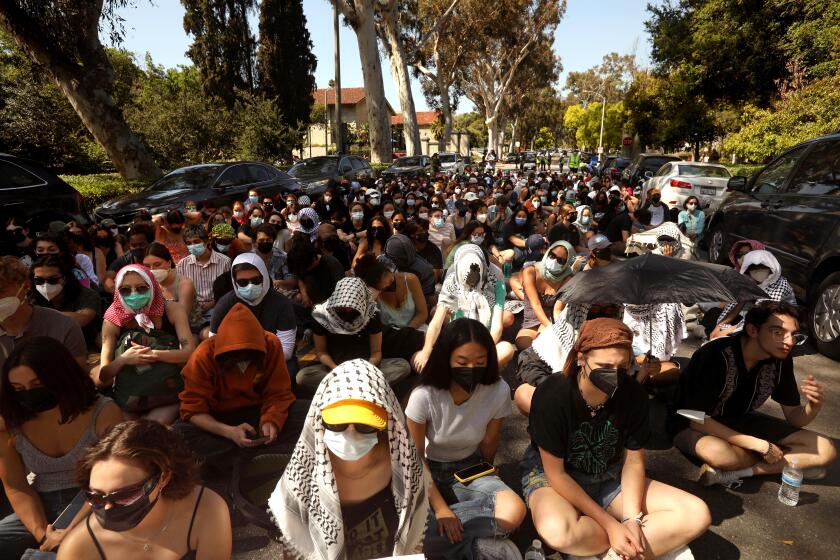Demi Moore, George Wallace and Americans’ abused voting rights
Back in 2012, prior to that year’s South Carolina presidential primary, I found myself in Charleston at a big rally for Mitt Romney. Sandwiched among voters waiting for their candidate to show up, I eavesdropped on an animated conversation between two vocally conservative men.
One of them was happily detailing how various Republican-controlled legislatures were passing new voting restrictions that would hurt Democrats. The other man was trying to sound equally enthusiastic, but it was clear he felt some ambivalence. He wondered out loud if it was a good idea for government to be subverting the most fundamental right in a democracy. Then, realizing he was straying uncomfortably from the party line, he quickly dropped this errant thought and agreed with his friend that GOP legislators were right to stick it to the other team.
It is a sad reflection on the state of our republic that the man in Charleston is far from alone in abandoning a sacred principle. Sometimes by nefarious design, sometimes through tired tradition and sometimes because of incompetence, political parties and state governments set up roadblocks to casting ballots instead of engaging as many people as possible in the political process.
The most egregious impediments to voting are the ones GOP legislators and officials have put in place in 17 states since the 2010 election. These new measures put limits on early voting and impose complicated identification requirements that particularly effect non-white citizens, low-income workers and students. It is estimated that more than 16 million registered voters in the United States lack the types of government-issued photo identification demanded by the new laws. (This is on top of a chronic situation where, in many jurisdictions, there are far fewer polling places and much longer waiting lines in African American and Latino neighborhoods than in more affluent, white neighborhoods.)
Fraudulent voting is the justification given for most of these voting restrictions, even though voter fraud has been proved to be more rare than a double rainbow. One Wisconsin legislator was recently caught on camera gleefully acknowledging the real intent of the new voting laws in his state: they will cut turnout for Hillary Clinton and the Democrats in the November general election.
In recent days, the established system of selecting presidential nominees has also come under scrutiny for the ways it discourages voting and subverts the will of those who do vote. Donald Trump has complained about how Ted Cruz and Republican Party insiders are gaming the complex delegate selection system to blunt the will of those voters who gave him victories in certain primaries. Even if he should have been smart enough to learn how to work the system himself, he is still correct about the wider reality that a lot of votes cast in both Republican and Democratic primaries do not really count because of arcane delegate selection procedures that vary from state to state.
Closed primaries that limit voting to registered members of a political party also block large numbers of voters from having a say about their choice for president. Half of millennials, for instance, describe themselves as independents and are thus ineligible to take part in closed primaries.
And speaking of independents, as many as three-fourths of the half-million registered members of California’s American Independent Party — the right-wing party that nominated Alabama’s segregationist governor, George Wallace, for president in 1968 — are members by mistake. Among the folks shocked to find they are listed on the rolls of the AIP is Hollywood star Demi Moore, who actively campaigned for President Obama, Patrick Schwarzenegger, the son of California’s last Republican governor, boxing champ Sugar Ray Leonard and actresses Emma Stone and Kaley Cuoco.
All these voters intended to get listed as independents and instead ended up lumped with the strange bedfellows of Wallace’s old party. They got tripped up by a voter registration form that, as my L.A. Times colleague George Skelton says, “looks like it was written by a chimpanzee.”
Happily, in California, the voting laws are relatively forgiving and those who have found themselves in the wrong party can rectify the problem before the June 7 primary. In other states, voters are not so lucky. In November, many of them them will find themselves standing in obscenely long lines when they try to exercise their right to vote and many more will be turned away or discouraged from showing up at the polls at all because of tricky identification requirements.
There are some smart ways to make voting easier and also more secure for everyone, but in too many states a majority of legislators do not actually believe every eligible citizen should get a say in who runs the government.
More to Read
A cure for the common opinion
Get thought-provoking perspectives with our weekly newsletter.
You may occasionally receive promotional content from the Los Angeles Times.






